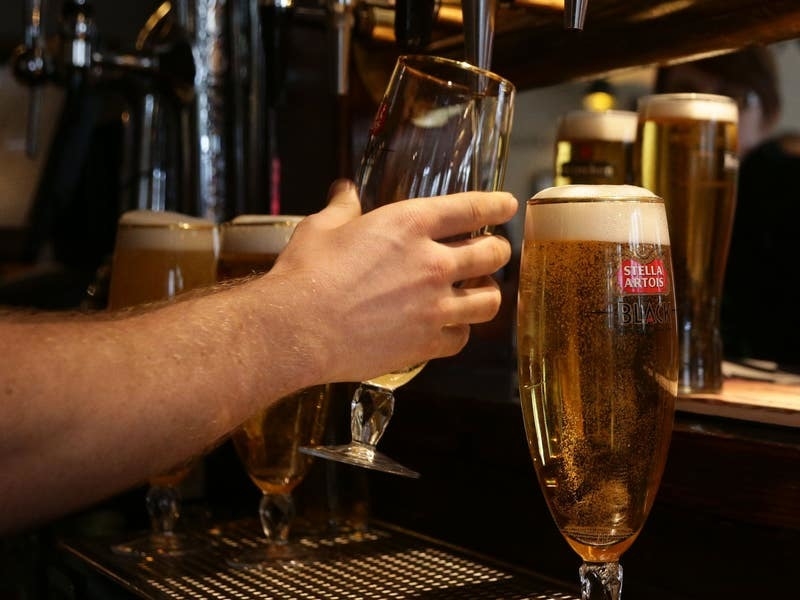Sailors competing in this year’s Clipper Round the World yacht race have praised the “warm welcome” they received when the event came to Scotland for the first time in its 27-year history.
The penultimate seventh leg of this year’s race, which started in Portsmouth last September, saw the boats racing 3,500 miles from Washington DC in the USA to Oban in Argyll and Bute.
For skipper Ineke Van Der Weijden, whose boat Perseverance won the leg in a time of 15 days and seven hours, crossing the finishing line late on Friday was a “magical” experience.
“For the last two hours, we were already sailing inside the islands. As we got there the sky lifted almost, because it was very foggy beforehand, and the sun started shining through and it was seven, eight o’clock in the evening.
“It was peaceful. It was beautiful. Then slowly, some small boats started coming out to see us in, which is absolutely wonderful. We all loved it. We just enjoyed it.

It was not the first visit to Oban for the professional sailor, who used to work as an international consultant before her first Clipper race in 2017-18 inspired her to change career.
“I have been to Oban before, I’ve done sailing out here before. I love it. Scotland is some of my most favourite sailing,” she explained.
“It’s beautiful. First of all, have you seen the landscape? But what I really like is it isn’t as overrun and overdeveloped as a sailing community. I like that it’s really sailors that want to be sailing.”
Paddy Moran from Galway, sailing on the Ha Long Bay Vietnam, said the approach to Oban was “spectacular”.
He added: “Even though we came in in the middle of the night, it was one of the most spectacular approaches that we had.
“We’ve had some pretty spectacular approaches to cities like Cape Town, Seattle, Washington up the Chesapeake Bay, but coming into Oban through the islands and up the channels was absolutely gorgeous, even at night.
Sailing in specially designed 70ft racing yachts, the 11 crew are competing over an eight-leg course that sees them circumnavigate the world across six oceans and travel some 40,000 nautical miles.
The Clipper 70s, which can reach speeds of around 35 knots, are built for stability as well as speed, with Ms Van Der Weijden explaining that “when you’re out at sea in heavy weather you’ll feel that the boat is not the problem, the boat will do fine”.
Each crew, which can be up to 22-strong, do four to six-hour shifts on deck, which slopes steeply when under sail.
Below deck the sailors take turns to cook in a cramped kitchen using a gimbal-mounted oven, and they sleep using a “hot bunk” system, which sees them take it in turns with another crew member to use the compact beds.
It is difficult to miss the fact the race has come to Oban, where the fleet will remain until the final leg begins on Sunday.
The town’s curving harbour is lined with race-branded banners and bunting, and the colourful yachts are moored at pontoons next to the fanzone on the North Pier.
It’s great to see so many people visiting Oban for the Clipper Round the World Yacht Race this week. ⛵️
Please leave extra time for your journey and check the traffic management arrangements before you go? https://t.co/WaID8ifYwM
Find out what’s on? https://t.co/8WBxYsJoE8 pic.twitter.com/KiMwsBs0zr
— Argyll and Bute Council (@argyllandbute) July 17, 2024
Oban is hosting a number of tie-in events, with the fleet’s arrival coinciding with the town’s Festival of the Sea.
Mr Moran said Oban is “buzzing right now” with the presence of the crews plus their families, friends and supporters.
He added of the race’s impact on the town: “I think it’s just put it on the map. I think that for myself it’s made a point of saying, you know, the west coast of Scotland is absolutely beautiful.
“I think it’s put it on a lot of people’s radar.”
Argyll and Bute Council leader Jim Lynch said: “It has been a great honour for Oban to host this fantastic sporting event.
“Our communities and businesses have given international Clipper race crews such a warm welcome.
“Tourism is a key industry for Argyll and Bute and the race has provided a welcome boost to the local economy, with many businesses reporting increased footfall.
“We wish all the Clipper race adventurers the best of luck with their grand finale.”
David Adams McGilp, VisitScotland regional director, said: “While it is too early to understand the full impact, the event has undoubtedly helped attract more visitors to the town and wider region, as well as raising the profile of the marine tourism offering in Argyll & Isles.”
The end of the race in Portsmouth on July 27 is a bittersweet prospect for many sailors, some of whom will have been away from home for nearly a year.
Jade Golder, a 24-year-old student from Surrey who took two years out of university to take part in the race, said: “I’m trying not to think about it. It hasn’t really hit me yet that we’re almost here.
“You start counting your last. So I’ve done my last galley [cooking shift], and this is our last stopover and things like that, but it doesn’t really hit home that it’s almost over.”






